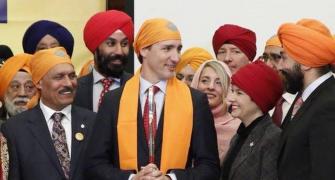 A legislation seeking to criminalise the act of corruption by foreign public officials and helping India ratify the UN Convention on Corruption was introduced in the Lok Sabha on Friday.
A legislation seeking to criminalise the act of corruption by foreign public officials and helping India ratify the UN Convention on Corruption was introduced in the Lok Sabha on Friday.The Prevention of Bribery of Foreign Public Officials and Officials of Public International Organisations Bill, 2011 prohibits accepting and giving ratification to or by foreign public officials.
The bill also has provision for declaring the offences under the proposed legislation as "extraditable". The measure, introduced by Minister of State for Personnel V Narayanasamy, seeks to provide punishment of up to seven years along with fine for offences under the Act.
India already has in place a framework for combating corruption under certain laws - Prevention of Corruption Act, 1988, the Prevention of Money Laundering Act, 2002 which cover a number of areas that need international standards for criminilisation of bribery.
"Article 16 of the Convention requires that each State Party shall adopt such legislative and other measures as may be necessary to establish as a criminal offence, the giving or taking of undue advantage to or by a foreign public official, directly or indirectly," says the Bill.
However, the bribery of foreign public officials in international transactions is not covered under the existing Acts.
"Therefore, a need has been felt to bring a legislation to give effect to the Convention," it reads.
Certain provisions of the Prevention of Corruption Act, 1988, and the Prevention of Money Laundering Act, 2002, would be amended to include provisions of the new legislation.
Under the bill, "foreign public official" means any person holding a legislative, executive, administrative or judicial office of a foreign country.
The term "official of a public international organisation" means an international civil servant or any person authorized by such an organisation to act on behalf of that organisation.
During the G-20 Summit in Seoul, India had signed its anti-corruption action plan, which requires it to ratify and implement the UN Convention.
In February, a Group of Ministers (GoM) had decided to recommend "stand alone" legislation on corruption to amend the relevant Indian laws to enable India ratify the UN Convention Against Corruption.
Under UN Convention, once a signatory country ratifies the Convention, its private citizens, including businessmen, who indulge in corruption, are liable to be punished.
Indian agencies can seek cooperation of the signatory countries in investigating cases where they have information about the accused or his kin holding bank accounts in foreign countries.





